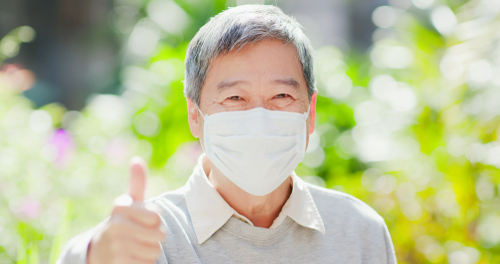
Springtime is in bloom, bringing the promise of fresh flowers, bright sunshine, and warmer weather. But if you're one of the 50 million Americans who suffer from allergies, the season also means sinus congestion, sneezing, and itchy, watery eyes.
What Causes Spring Allergies?
Allergens are generally harmless substances that your immune system mistakenly identifies as threats to the body. An allergic response is triggered when you come into contact with airborne matter, such as pollen, animal dander, and dust. Your body then produces excess immunoglobulin E antibodies (IgE) to fight off the allergen and mast cells release the chemical histamine, which is what causes the inflammation in your sinuses.
Tips for Treating Allergy symptoms
The best way to deal with allergy season is to prepare for it. Read on for tips from Dr. Jennifer Sherman, allergist/immunologist at Summit Health, for how to manage your spring allergies before they get the best of you.
1. Know your allergy triggers
Visit a specialist for a blood or skin test. They'll pinpoint your condition and can develop a personalized treatment plan for managing your symptoms.
2. Check the weather
Websites like pollen.com, which reports your local pollen index, will alert you about which days you’re better off spending inside if you can. "Tree pollen tends to peak in the spring, grasses in the summer, and weeds during the fall months," Dr. Sherman says. "Wearing sunglasses will protect your eyes from both the sun and pollen."
3. Stock your medicine cabinet
Over-the-counter remedies including nasal spray, oral antihistamines, decongestants, and allergy eye drops can help relieve your short-term symptoms. Prescription-strength options are also available from your doctor, if needed.
4. Keep indoor air clean
Dr. Sherman advises keeping windows closed, particularly those in the bedroom, during allergy season. "Be aware that your pets can also introduce pollen into the home," she says. "Wipe your pets down to the extent possible and wash your hands after direct contact." In addition, invest in a vacuum and an air conditioner/purifier equipped with HEPA filters to trap and clear pollutants for healthier breathing indoors.
5. Do your spring cleaning
Thoroughly clean your home to remove dust and other allergens that have built up over the cooler months. Give extra attention to curtains, rugs, and upholstery since they get washed and disinfected less often.
Allergies and the COVID-19 pandemic
Preventive measures for coronavirus and seasonal allergies go hand in hand. "Keep in mind that COVID-19 and seasonal allergies share many symptoms, but there are key differences between the two," Dr. Sherman explains. "Fever and loss of taste and smell can be signs of COVID-19 infection. If in doubt, further evaluation, quarantine, and testing are recommended."
Many of the hygiene practices that help protect you from COVID-19 are also important when dealing with allergies:
• Cough and sneeze away from others into a tissue, handkerchief, or your elbow, even when you're wearing a mask. Be sure to wash your hands immediately afterward.
• Have a backup mask handy. When you have sneezed heavily, you'll be more comfortable and hygienic in a fresh face covering.
• Your mask could be carrying pollen and other irritants, so wash it daily and store it properly in a plastic or paper bag.
Same-Day Allergy Appointments Available
Our allergists can confirm if you have allergies, find your triggers, and come up with a treatment plan that is suitable to you and your lifestyle. We have offices in Berkeley Heights, Clifton, Closter, Fair Lawn, Florham Park, Livingston, Riverdale, and Westfield. View our allergists here!
